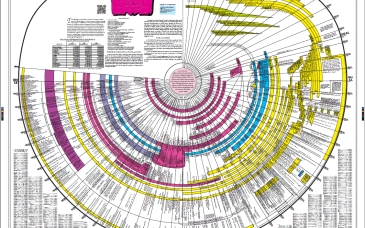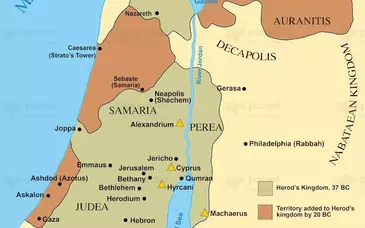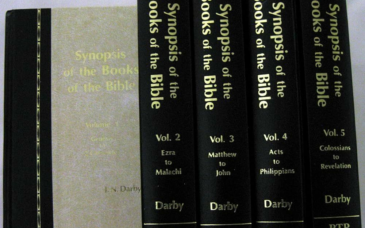Inerrancy is a word which describes the concept of the complete accuracy and truthfulness of the Bible as the Word of God. When we say that the Bible is "inerrant", we mean that the Bible is wholly true, that it was given by God to the original authors in such a way that it is without error and is free from untruth.
The authority of Scripture is a key issue for the Christian church in this age, as it has been in every age. Christian believers are called upon to show the reality of their discipleship by humbly and faithfully obeying God's written Word. Therefore, recognition of the total trustworthiness of Scripture is essential to a full and adequate confession of its authority.
There is a continuous attack on the Word of God and its place as the authoritative representation of the mind of God on earth. This attack is orchestrated by Satan himself as part of the spiritual conflict. The following paragraphs state the position of fundamental believers on the question of the authority of the Bible.
| The Holy Bible is to be received as the authoritative Word of God. | The Bible does not receive its authority from the Church, from tradition, or from any other human source. |
| The Bible is the supreme written norm by which God binds the conscience; and the authority of the Church is subordinate to that of Scripture. | Church creeds, councils, or declarations do not have authority greater than or equal to the authority of the Bible. |
| The written Word in its entirety is revelation given by God. | The Bible is not merely a witness to revelation, does not become revelation in encounter, does not depend on the responses of men for its validity. |
| The written Word was completed with the New Testament. | There is no later revelation which corrects or contradicts the Bible. No normative revelation has been given since the completion of the New Testament. |
| God, who made mankind in His image, used language as a means of revelation. | Human language is not inadequate as a vehicle for divine revelation. And human language and culture have not suffered a corruption through sin which somehow thwart God's work of inspiration. |
| The whole of Scripture and all of its parts, down to the very words of the original, were given by divine inspiration. | The inspiration of Scripture cannot be rightly affirmed of the whole without the parts, or of some parts but not the whole. |
| Inspiration was the work in which God, by His Spirit, through human writers, gave us His Word. The origin of Scripture is divine. | Inspiration cannot be reduced to human insight or to heightened states of consciousness of any kind. |
| God, in His work of inspiration, used the distinctive personalities and literary styles of the writers whom He had chosen and prepared. | God did not override the writers' personalities in using the words that He chose. |
| Inspiration, while not conferring omniscience on the authors, guaranteed true and trustworthy utterance on all matters of which they were moved to write. The Scripture in its entirety is inerrant, free from all falsehood, deceit, or fraud. | The fallen natures or finiteness of the authors did not, by necessity or otherwise, introduce distortion or falsehood into God's Word. Infallibility is not limited to spiritual, religious, or redemptive themes, exclusive of assertions in the fields of history and science. |
| Inspiration, strictly speaking, applies only to the original writings of the authors which in the providence of God can be ascertained from available manuscripts with great accuracy. Copies and translations of Scripture are the Word of God to the extent that they faithfully represent the original. | No essential element of the Christian faith is affected by the absence of the original autographs. This absence does not, moreover, render the assertion of Biblical inerrancy invalid or irrelevant. |
| It is proper to use the term "inerrancy" as a theological term with reference to the complete truthfulness of Scripture. | It is not proper to evaluate Scripture according to standards of truth and error that are alien to its usage and purpose. Inerrancy is not negated by Biblical phenomena such as a lack of modern technical precision, irregularities of grammar or spelling, observational descriptions of nature, the reporting of falsehoods, the use of hyperbole and round numbers, the topical arrangement of material, variant selections of material in parallel accounts, or the use of free citations. |
| The Scriptures are unified and consistent internally. | Alleged errors and discrepancies which have not yet been resolved do not vitiate the truth claims of the Bible. |
| The doctrine of Inerrancy has been integral to the Christian Church's faith throughout its history. | Inerrancy is not a doctrine invented by Scholastic Protestantism; and it is not a reactionary position postulated in response to negative higher criticism. |
| The Holy Spirit bears witness to the Scriptures, assuring believers of the truthfulness of God's written Word. | The witness of the Holy Spirit does not operate in isolation from or against Scripture. |
| The text of Scripture is to be interpreted by grammatical and historical exegesis, taking into account its literary forms and devices; and Scripture is to be used to interpret Scripture. | Any treatment of the text, or quest for sources lying behind it, that leads to relativizing, de-historicizing, or rejecting its claims to authorship, is not legitimate. |
| Confession of the full authority, infallibility, and inerrancy of Scripture is vital to a sound understanding of the whole of Christian faith. Such confession should lead to increasing conformity to the image of Christ. | Confession of inerrancy is not necessary for salvation. However, inerrancy can be rejected only with serious consequences, both to the individual and to the Church. |





